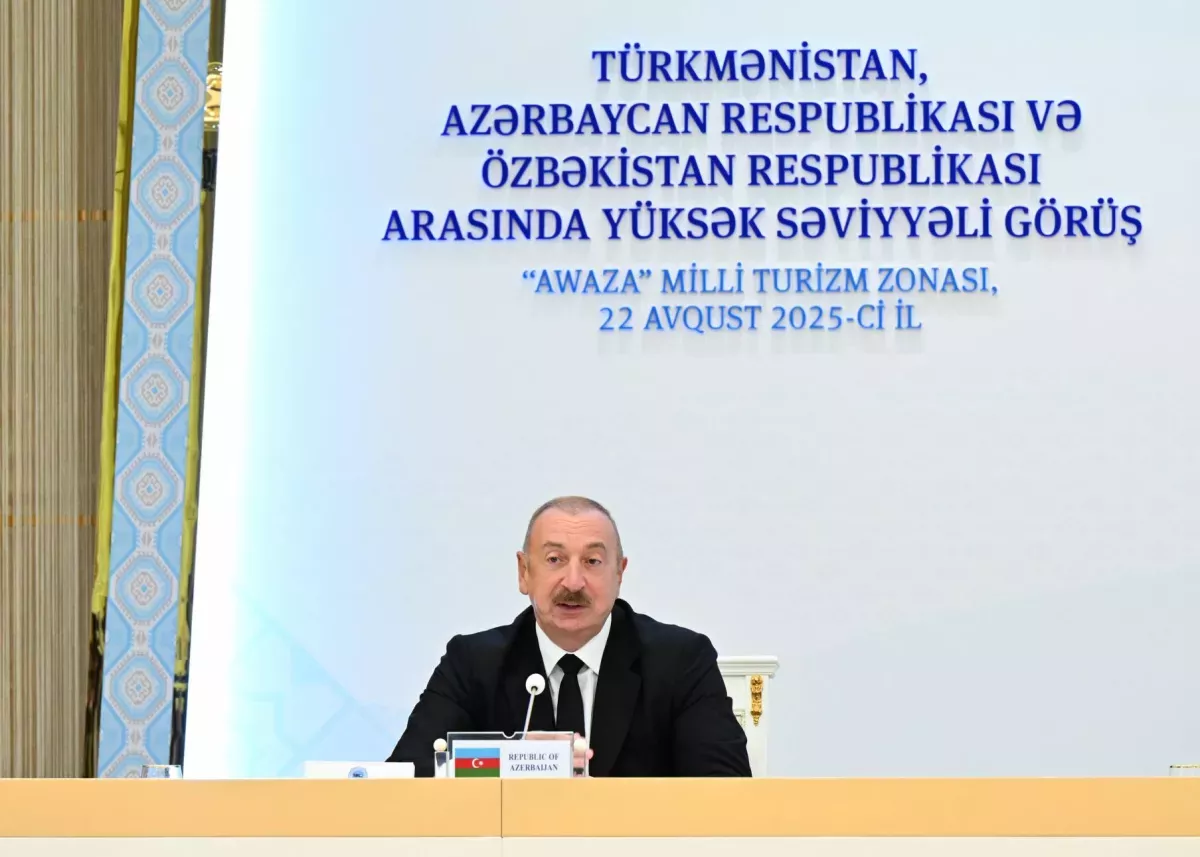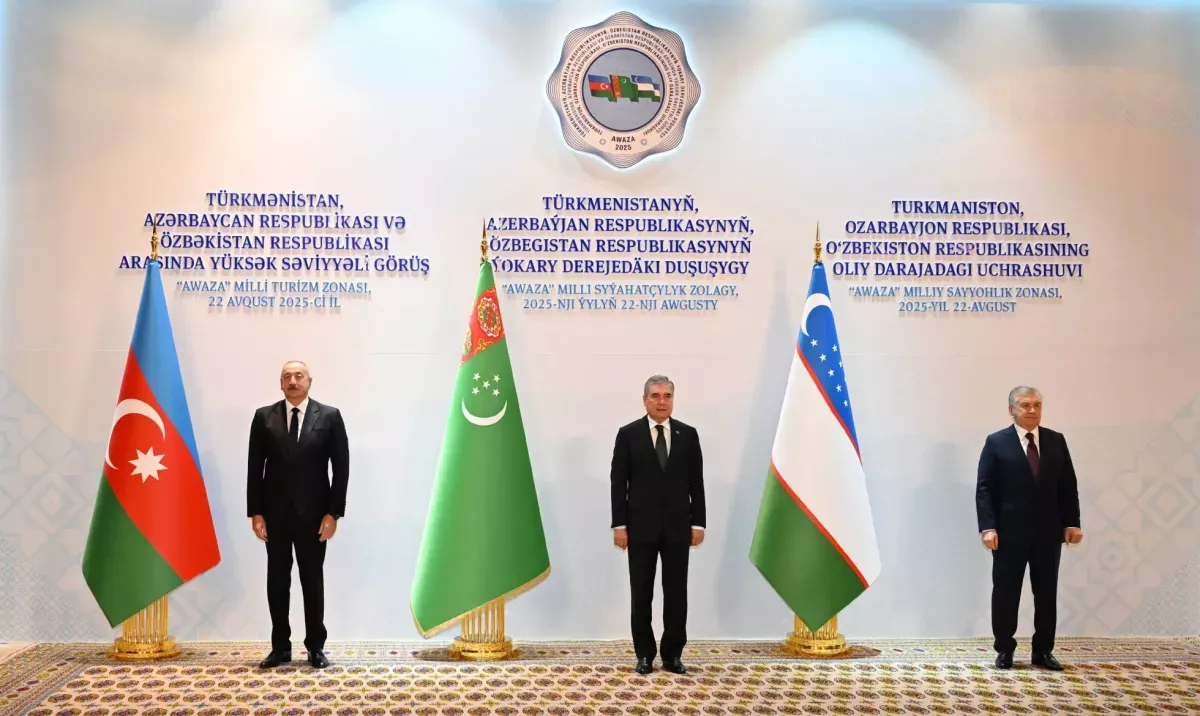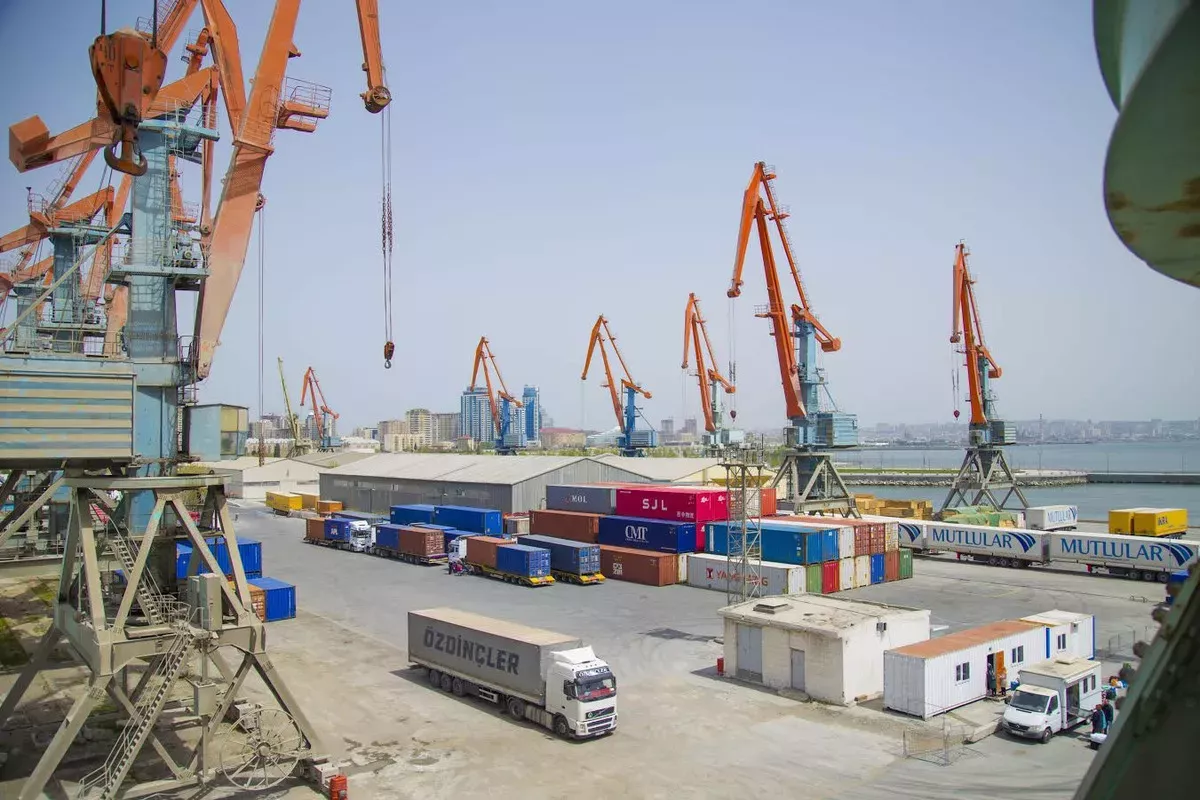Trade, transport, manufacturing: Enhancing trilateral connectivity between Baku, Tashkent, and Ashgabat
In recent years, Azerbaijan has been accelerating its business ties with Central Asian countries on both bilateral and multilateral levels. The core of this integration vector remains energy, logistics, and trade projects, and recently this cooperation has expanded to include initiatives in investment and joint production. During a recent meeting at Turkmenistan’s National Tourist Zone Avaza, the leaders of Azerbaijan, Uzbekistan, and Turkmenistan issued a joint statement, and a package of documents was signed to institutionalise the trilateral format of economic cooperation.
"Based on the cultural and historical proximity of our peoples, shared values and strategic interests, we are opening a new chapter in the history of cooperation between three friendly and fraternal states today. On this day, when I am visiting the hospitable Turkmen land, I would like to note again that Turkmenistan, under the wise leadership of esteemed Gurbanguly Malikgulyyevich, has made significant achievements in terms of socioeconomic development and enhanced its international role and influence. His contribution to the development of modern Turkmenistan is an example of effective state governance, strategic vision and devotion to the Motherland," stated Azerbaijani President Ilham Aliyev during the high-level meeting in Avaza, Turkmenistan, on August 22.

The head of state emphasised that our countries face new challenges and that additional opportunities are opening up for them in the areas of transport and transit cooperation, as well as partnerships in the energy sector.
It is worth recalling that, relying on the highest level of mutual understanding and trust among the leadership of the three countries, Baku has for many years been building highly productive business cooperation with Tashkent and Ashgabat, both bilaterally and within the framework of the Organization of Turkic States (OTS) and other international structures. This partnership is based on mutually beneficial trade relations, stable trans-Caspian transit of hydrocarbons, minerals, agricultural and other raw materials, as well as joint efforts to expand port and railway infrastructure, digitalise, and simplify cross-border procedures in order to increase cargo traffic along the Middle Corridor. At the same time, the three friendly states are opening trade representations, developing a joint investment fund, establishing cooperation in the oil, agricultural, and industrial sectors, and collaborating in space and IT fields.
A logical continuation of the established business cooperation are the documents recently signed in Turkmenistan, which set long-term sectoral directions and create a stable platform with concrete focus areas. In particular, these agreements cover civil aviation, shipbuilding, stock exchange cooperation, and, of course, the transport and logistics sector. The three brotherly states plan to establish a network of wholesale and distribution hubs and develop sustainable trade and logistics chains. These initiatives are designed to create concrete mechanisms for regional economic growth, strengthen cooperation between the South Caucasus and Central Asia, reduce transit risks, and enhance the negotiating leverage of the three countries in Middle Corridor projects. In pursuit of these goals, a Roadmap is planned, along with the creation of a Joint Working Group tasked with discussing the development of transport and communication infrastructure, coordinating transportation, and simplifying cross-border transshipment procedures.
One of the key vectors of the trilateral cooperation is the aviation sector: plans include establishing direct and connecting flights for Asia-Europe transit passenger traffic, as well as coordinating in Maintenance, Repair, and Overhaul (MRO)—covering technical servicing and major repairs of aircraft and their components, personnel training, joint leasing, and the creation of a shared spare parts pool. The establishment of joint aviation services is expected to reduce operational costs by up to 20%, enhancing the competitiveness of passenger and cargo aviation in the international market and, importantly, serving as a key driver for the promotion of regional tourism.

Another priority area is shipping and shipbuilding, specifically the cooperation of the three countries in modernising fleets on the Caspian Sea, with a focus on expanding ferry capacities to increase cargo flow through the ports of Turkmenbashi and Alat. Uzbekistan, which does not have direct access to open seas, also plans to acquire cargo vessels, placing orders at shipyards in Azerbaijan and Turkmenistan. As noted in an interview with the “Uzbekistan-24” TV channel by Uzbekistan’s Minister of Transport Ilkhom Makhkamov, the country intends to operate its own ferries on the Caspian Sea in the future. According to the minister, a trilateral agreement has been signed between Uzbekistan, Azerbaijan, and Turkmenistan to establish joint companies in the transport and logistics sector. Their goal is to create conditions for seamless cargo transit, provide freight forwarding services, and offer certain preferences for transporting goods via Uzbek forwarding companies, which will reduce transportation costs and logistical burdens for producers and shippers.
To enhance the connectivity of the Uzbekistan–Turkmenistan–Azerbaijan corridor with access to the Black Sea and Europe, plans also include implementing unified IT solutions, establishing digital data exchange, introducing digital labelling systems, harmonising phytosanitary and quarantine regulations, and promoting the development of wholesale and distribution centres, dry ports, and multimodal transport. According to Uzbek expert Ravshan Nazarov, the implementation of these initiatives will increase containerisation and multimodal transport, accelerate goods transit by 20–25 per cent, and reduce logistics costs by 10–15 per cent for all participants in the agreements. It is worth recalling that Baku and Tashkent previously agreed to provide Uzbek companies with a platform to establish their own terminal at the Baku International Sea Trade Port, which will be used for transit shipments of sugar as well as other import-export operations with Azerbaijan.

The energy sector is viewed as a highly promising area of trilateral cooperation. In recent years, the partners have developed a portfolio of joint initiatives, including significant agreements between Azerbaijan and Turkmenistan on the joint development of the Dostlug field in the Caspian Sea. There are also agreements for SOCAR’s participation in the development of oil fields on the Ustyurt Plateau in Uzbekistan, and SOCAR, together with Uzbekneftegaz, has established a joint venture for gas trading.
The Azerbaijan–Turkmenistan energy track is also developing effectively: for many years, Turkmen oil has been transported to global markets via the Baku–Tbilisi–Ceyhan pipeline, while petroleum products and fuel are shipped through SOCAR’s Kulevi terminal in Georgia. Since 2021, Baku, Ashgabat, and Tehran have been partners in a trilateral agreement on organising swap deliveries of natural gas. Additionally, Azerbaijan and Turkmenistan are advancing cooperation on prospective electricity supplies to European countries via an energy bridge. The governments of Turkmenistan and Kazakhstan have officially announced their readiness to participate in laying an energy cable across the Caspian Sea and supplying electricity to the Black Sea Energy system.
“A new 1,574 MW power plant will be commissioned on the Turkmen coast of the Caspian Sea; with its launch, additional opportunities will open up for electricity supplies to Azerbaijan and transit to European countries,” said Gurbanguly Berdimuhamedow, Chairman of the Halk Maslahaty of Turkmenistan, at the high-level trilateral meeting in Avaza.
Notably, in recent years, Baku and Tashkent have accelerated cooperation in the non-oil sector: the two countries have a joint venture in the Hajigabul industrial district assembling Chevrolet vehicles, as well as Uzbek investments in a cotton production and processing cluster, cotton oil production, and, in the future, the construction of facilities for yarn, textile, and garment manufacturing in the Mingachevir Industrial Park. In the city of Khankendi, a large garment factory built by Uzbek investors employs over 200 people. A highly effective instrument for Azerbaijani-Uzbek industrial initiatives is the $500 million joint investment fund, whose supervisory board has already selected twelve concrete projects for implementation.








